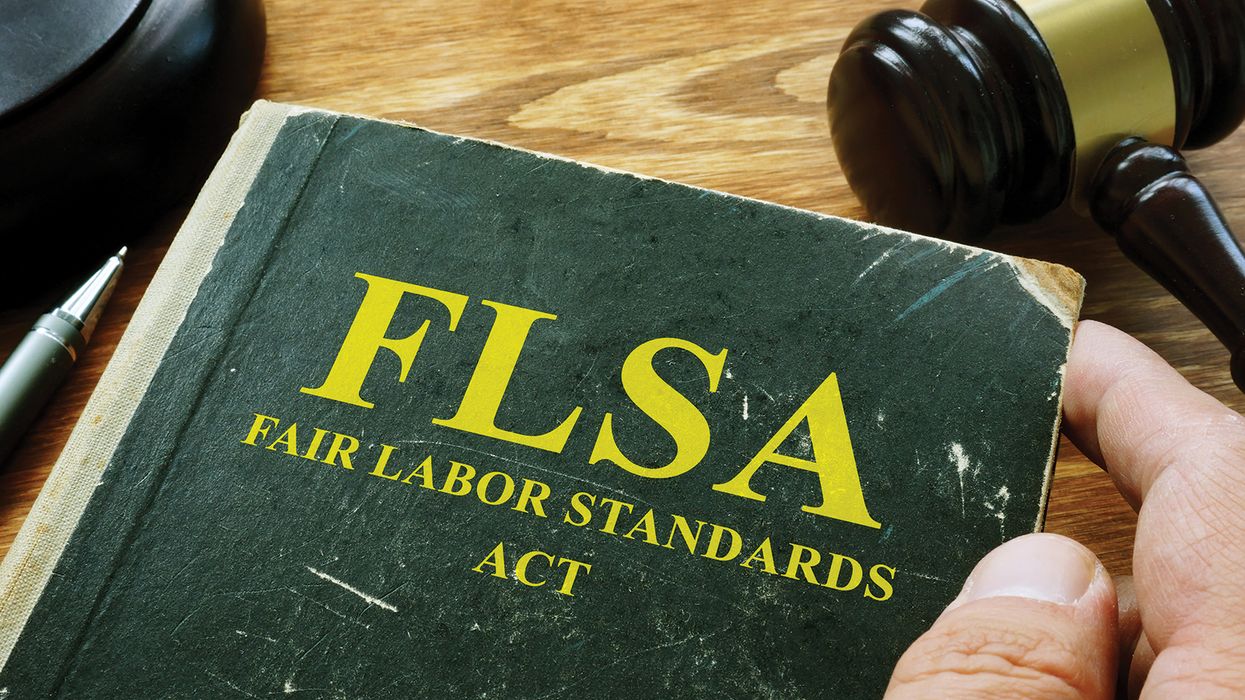Top 5 FLSA violations and how to avoid them
The federal Fair Labor Standards Act (FLSA) has been around since 1938. The reason the FLSA was enacted was to establish employment standards on wages, overtime pay, recordkeeping, and child labor.
It requires, for example, covered employers to pay nonexempt (“hourly”) employees at least the federal hourly minimum wage for all hours worked, as well as overtime pay for work performed beyond 40 hours in a workweek.
On the surface, that sounds fairly straightforward; however, employers have violated the FLSA numerous times over the past 87 years. Here are the top five violations we’ve seen over the years and what to do to avoid them:
1. Violation: Inaccurately classifying employees. To classify employees as exempt, they must meet three FLSA criteria: Be paid on a salary basis, be paid at least a certain salary for every week worked, and perform certain job duties. Some employers classify employees as exempt if they pay them on a salary basis, but neglect the other two criteria.
What to do: Ensure that all employees classified as exempt meet all three FLSA criteria. In addition to being paid on a salary basis, they must also be paid at least $684 per week every week they perform any work ($35,568 per year) and perform certain duties.
2. Violation: Not paying overtime. Nonexempt employees must receive overtime pay for hours worked over 40 in a workweek at a rate not less than one and one-half times the regular rate of pay.
What to do: Look at the records of when nonexempt employees have worked and ensure that any time beyond 40 hours is paid as overtime. Employers that don’t want to pay overtime can have policies restricting working extra hours. If employees do work the extra hours, they must be paid overtime, but they can be disciplined for violating an applicable policy.
3. Violation: Not paying employees for all hours worked. Employers violate the FLSA if they fail to pay nonexempt employees for all hours worked. This includes breaks, business travel time, mandatory training, and so on.
What to do: Be familiar with what the FLSA considers hours worked and pay employees for those hours. This includes paying overtime for any hours over 40 in a workweek.
4. Violation: Making improper deductions. The FLSA prohibits employers from making certain types of deductions from employees’ paychecks that would reduce their pay below minimum wage or reduce overtime compensation. Common examples of improper deductions include deductions for uniforms, tools, or other job-related expenses.
What to do: Employers should ensure that any deductions made from employees’ pay are lawful and do not result in the employee receiving less than minimum wage or overtime pay.
5. Violation: Not keeping records. Employers must keep records related to wages and hours for a pre-determined amount of time.
What to do: Double-check what records are being kept. In addition to nonexempt employee personal information, the FLSA mandates that employers keep the following information:
- Time and day of week when the workweek begins.
- Hours worked each day.
- Total hours worked each workweek.
- Basis on which wages are paid (e.g., "$9 per hour", "$440 a week", "piecework").
- Regular hourly pay rate.
- Total daily or weekly straight-time earnings.
- Total overtime earnings for the workweek.
- All additions to or deductions from wages.
- Total wages paid each pay period.
- Date of payment and the pay period covered by the payment.
The FLSA is the baseline standard for federal wage and hour laws. Some states have higher standards, such as higher salary thresholds, that employers must follow. Whichever standard is most beneficial to employees is what employers need to comply with.
Key to remember: Employers can avoid some of the more common FLSA violations with some careful review and consideration.





















































